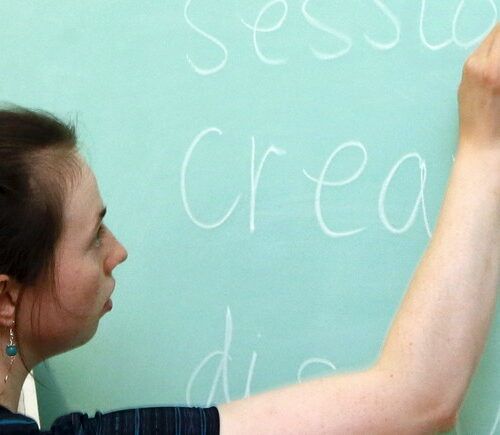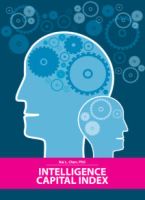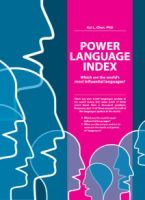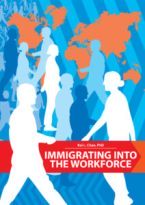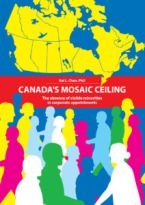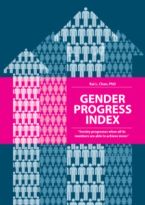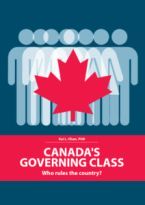
L’anglais, trop fort ANTOINE ROBITAILLE Mardi, 6 novembre 2018 05:00MISE à JOUR Mardi, 6 novembre 2018 05:00 Je suis tombé hier par hasard sur un texte intitulé « Is the English language too powerful ? ». (La langue anglaise est-elle trop puissante ?) L’auteur, Kai Chan, est « distinguished fellow » à l’INSEAD (l’Institut européen d’administration des affaires). Il a grandi à Toronto, mais conseille entre autres le gouvernement des Émirats arabes unis. Chan met des chiffres sur ce qu’on sait intuitivement, soit que la langue anglaise n’a peut-être jamais été aussi forte : c’est la « langue des sciences, des affaires et de la recherche », écrit-il. Le chercheur a dressé un « Power Language Index » (PLI), sorte de palmarès, afin de déterminer quelle est la langue « la plus utile dans la vie d’une personne, dans une perspective mondiale ». Sans surprise, dans le PLI, l’anglais a le score le plus élevé, 0,889. Le mandarin ? 0,411. « Ainsi, écrit Chan, non seulement l’anglais est la langue la plus puissante, elle l’est deux fois plus que sa plus proche rivale. » Montréal Dans sa note publiée par le World Economic Forum, le chercheur se penche sur le cas de Montréal. Il souligne ceci :…

 BUSINESS INSIDER FRANCE Chisato Goya 24 Mai 2019, 14:23 NB: Text below changed from article to reflect that spending on education is expressed per capita (par tête), not per student. https://www.businessinsider.fr/classement-pays-meilleurs-resultats-scolaires-que-france Dépenser plus ne garantit pas forcément de meilleurs résultats. Cette affirmation est vraie dans différents domaines, dont l'éducation. Kai L. Chan, professeur émérite de l'INSEAD Innovation & Policy Initiative, a classé différents pays en fonction du retour sur investissement en matière d'éducation et a partagé les résultats de ses calculs dans un article publié sur un blog de l'école. Il en ressort notamment que les Etats-Unis sont le pays qui dépensent le plus d'argent par étudiant en études supérieures ce qui n'empêche pas, dans l'ensemble, qu'ils ne soient classés qu'en 42e position pour le GMAT, un test standardisé en anglais qui permet de mesurer les compétences jugées importantes pour l'étude du management. Selon des chiffres fournis par Kai L. Chan à Business Insider France, plusieurs pays ont obtenu de meilleurs scores au classement PISA (évaluation visant à tester les compétences des élèves de 15 ans en lecture, sciences et mathématiques) et au test GMAT par rapport à la France alors qu'ils disposaient d'un budget public par étudiant inférieur à…
BUSINESS INSIDER FRANCE Chisato Goya 24 Mai 2019, 14:23 NB: Text below changed from article to reflect that spending on education is expressed per capita (par tête), not per student. https://www.businessinsider.fr/classement-pays-meilleurs-resultats-scolaires-que-france Dépenser plus ne garantit pas forcément de meilleurs résultats. Cette affirmation est vraie dans différents domaines, dont l'éducation. Kai L. Chan, professeur émérite de l'INSEAD Innovation & Policy Initiative, a classé différents pays en fonction du retour sur investissement en matière d'éducation et a partagé les résultats de ses calculs dans un article publié sur un blog de l'école. Il en ressort notamment que les Etats-Unis sont le pays qui dépensent le plus d'argent par étudiant en études supérieures ce qui n'empêche pas, dans l'ensemble, qu'ils ne soient classés qu'en 42e position pour le GMAT, un test standardisé en anglais qui permet de mesurer les compétences jugées importantes pour l'étude du management. Selon des chiffres fournis par Kai L. Chan à Business Insider France, plusieurs pays ont obtenu de meilleurs scores au classement PISA (évaluation visant à tester les compétences des élèves de 15 ans en lecture, sciences et mathématiques) et au test GMAT par rapport à la France alors qu'ils disposaient d'un budget public par étudiant inférieur à… 


